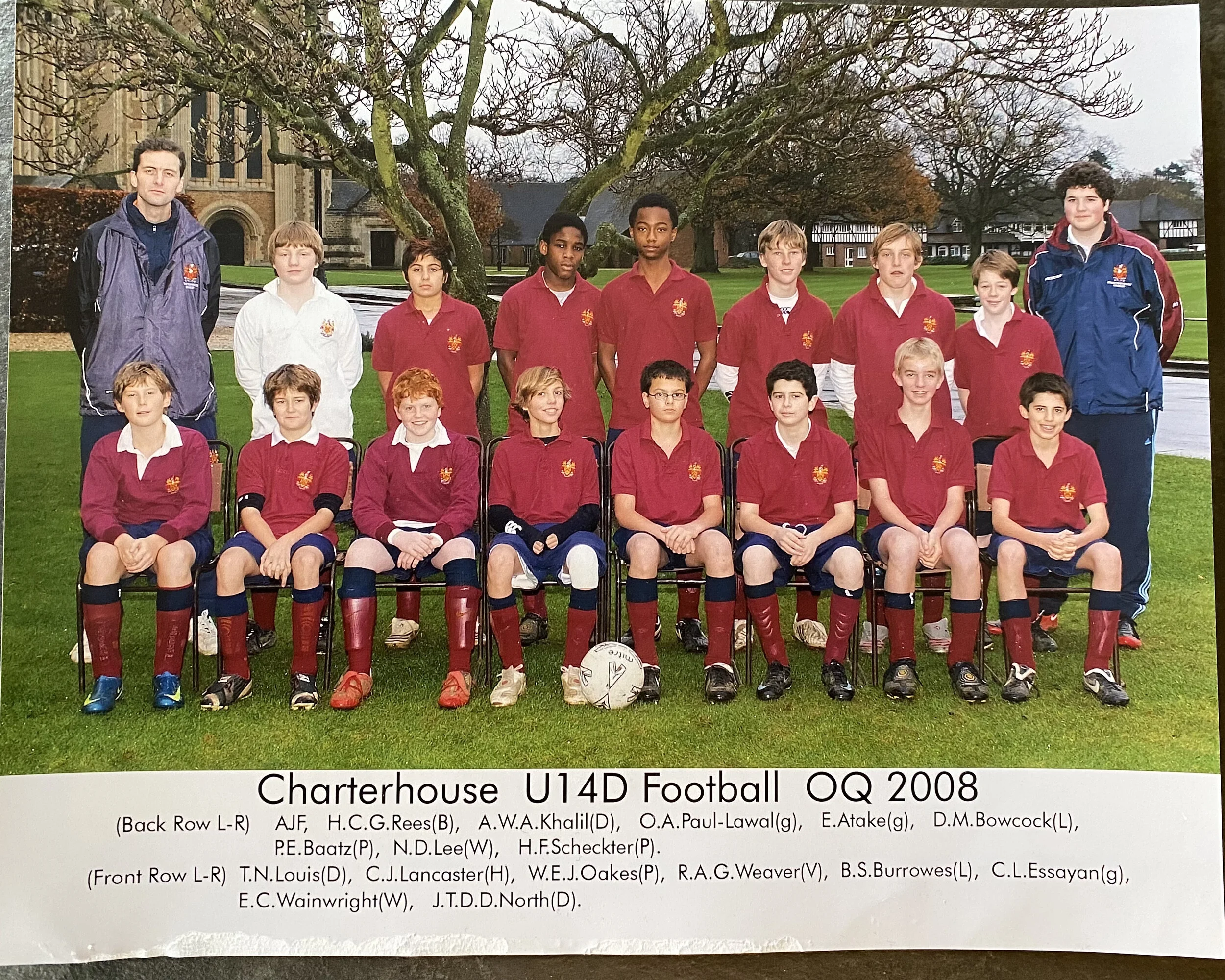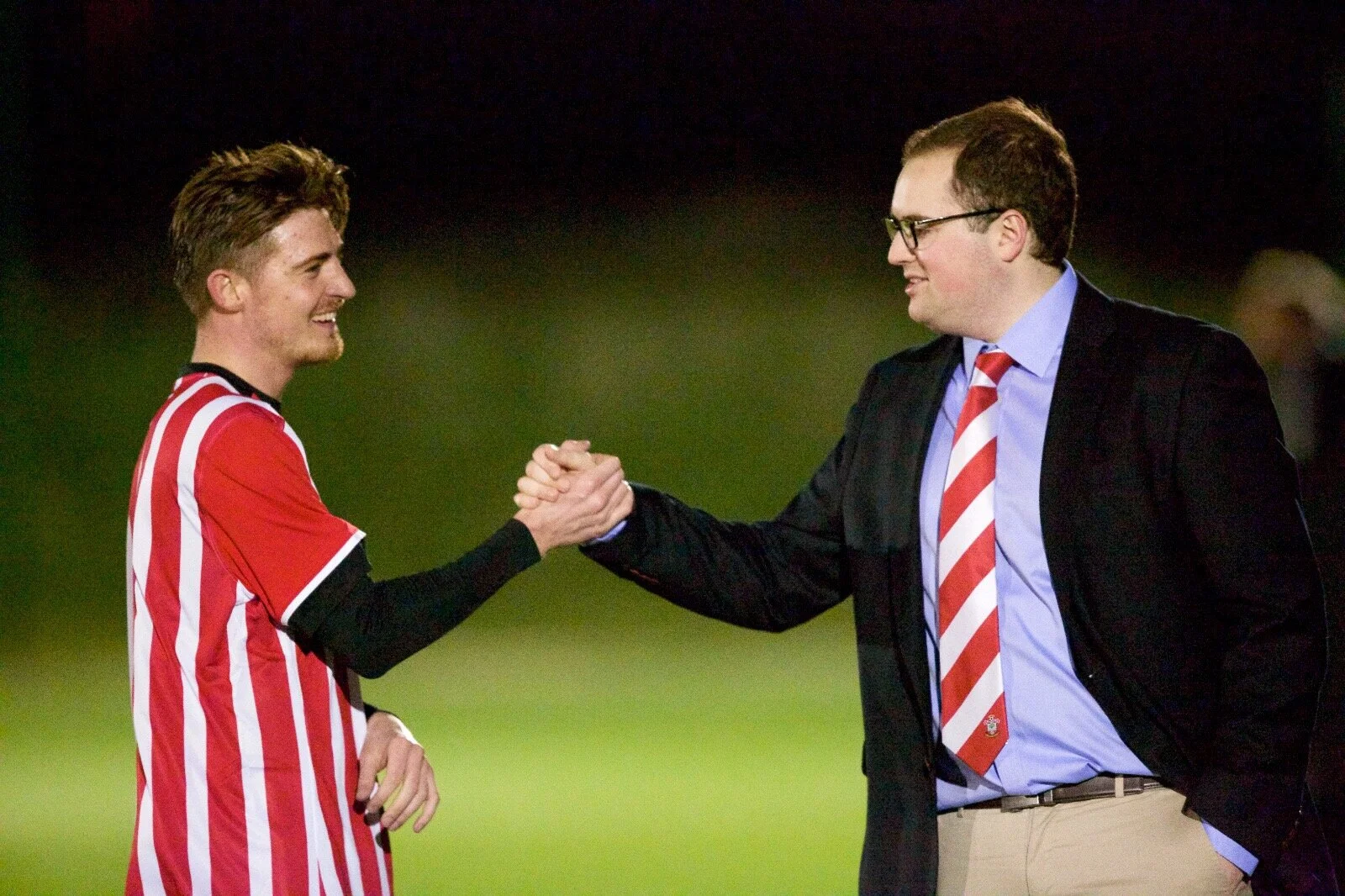5: On the Pitch to the Sidelines
When I was much younger, I always wanted to be a football coach. Fueled by summers of playing Championship Manager 01/02 (then Football Manager) and really falling in love with the sport, I was guided by the Head of Football at Charterhouse School, Malcolm Bailey, to do my FA Level 1 coaching badge in order to try turn my passion into something more productive.
My family have never been football fans - so I grew into the sport through friends, computer games and magazines. Consequently I don’t really support a team - partly through lack of anything in my blood but also later on due to my career. I most closely followed David Moyes’s Everton due to their underdog status and an admiration of a number of the players - but now having worked for 2 clubs, it’s hard to have any other loyalties other than the club you work for. I could never work as hard as I did for Southampton & West Ham to then hope we lose to Everton - so I can’t say that I really keep an eye out for their results any more.
As I did the FA Level 1 coaching badge in the summer of 2010, I realised this is something I could enjoy. I relished the challenge of man management and trying to get the pieces of the puzzle to fit together. I didn’t play at any level - I’d never been good (or interested) enough but this is somewhere I felt I could add real value.
The school let me coach the 4th U14’s team, the U14Ds - I remember I was the first student in recent history to get this responsibility and there was uncertainty as to whether I could handle it or not - but it was brilliant. We went the whole season against other schools unbeaten (except one game I missed because of an exam!) and really challenged the teams above us as well. For me, it was a huge learning experience but also the first time I realised what a difference the non football parts of management could make. We played a 442 every game, but we had a really nice community within the team. We had team bonding dinners, player awards, stats - little bits that made the players feel like they were part of something bigger and I know there was a sense of jealousy of other players that they didn’t have this in their team.
The season after, I was given an U18s team - this was much more of a challenge as I was coaching my age group. We were the CXI, the 3rd team and there wasn’t a huge amount of focus on this team by the players, but I was still determined to make it work. Coaching my own age group threw up problems that I experienced later in my career - how difficult it can be to be friends with people you manage, gaining authority with people older than you etc. The difference here being that many of these players had been my friends for 4 years, so to then have to be impartial when I had to live with them was difficult. We weren’t great though I learnt more through the ‘failure’ of that team than I did through the success of the U14s. Learnt to be tough with people but also to pick your battles - a key trait to be successful in a career in sports.
By now I was really focused on doing the coaching track - I ended up coaching anyone I could to get experience. I was the coach of an U14s Cricket team, despite not really knowing much about cricket - but again it was a lesson in man management and team building. I’ve talked in an earlier blog about my coaching throughout University and it really was where I saw my career. I did an FA Youth coaching module before moving into the American soccer coaching system doing my USSF D license and my goalkeeping level 1- I’d read coaching books, attend conferences, network heavily with coaches and watch as much as football as possible.
I had two issues though - 1) My interest was much more on the human interaction & people management side than the tactical/technical side of the game and 2) my lack of playing at any level (I don’t think I’ve ever played 90 mins of 11v11) put a likely ceiling on my coaching career. My teams always played a flat 442 or 442 Diamond, with a real focus on player to player chemistry rather than clever tactics. At the lower levels I coached of boys, girls and mens football this worked well - everyone knew their role, knew what they had to do and we were so much better organised off the pitch than the other teams that we would do very well. This falls apart when you work with technically better players who want to be coached with more nuance and you need an adaptable game plan that we didn’t have - so I started to think that maybe there was a better path for me to take.
It took former Athletic Director at my university, Patrick Nero, to talk honestly about my career prospects - being a volunteer assistant coach on a few different programmes around the country before maybe getting a full time role that wouldn’t be secure - I could never get a top job. He guided me into a job on the administration side of sport, which is what lead to my role at Indy Eleven and then into Player Care, for which I’m grateful. It took a number of years to get the ‘coach’ out of my thinking - I remember being on the team coach after a Southampton FC game early on in my career and asking Ronald Koeman for insight into why he’d made a sub that had turned the game for the worse. I was genuinely curious as a coach to learn what he’d envisaged… but the stare I got back made me quickly realise an error of judgement in asking at that particular moment! The response was “Hugo, we pay you not to talk about football!”. I kept my footballing observations to myself in the future!
My last coaching gig - Southampton FC Staff XI vs the Wykeham Arms, 2017. Pictured with Scott Waters, Head of Analysis at Southampton FC.
I definitely see myself as a ‘non footballing’ member of staff now - in clubs there are so many highly qualified and experienced people who deal with the technical & tactical side of the game, as well as analysts, scouts and sports scientists, that I’d not be confident of my on the pitch knowledge. I’d encourage those who want to work in Player Care job but have a technical background to make it clear that this is a change of career. A manager needs to have a set way of playing and his coaches saying broadly the same message - he doesn’t want a player care officer giving their own opinions to the players.
Everyone has a unique journey to where they’re currently at - and I take a lot from my coaching days in terms of how I work with & manage people. What skills have you picked up from an experience that isn’t directly related to what you do now?


